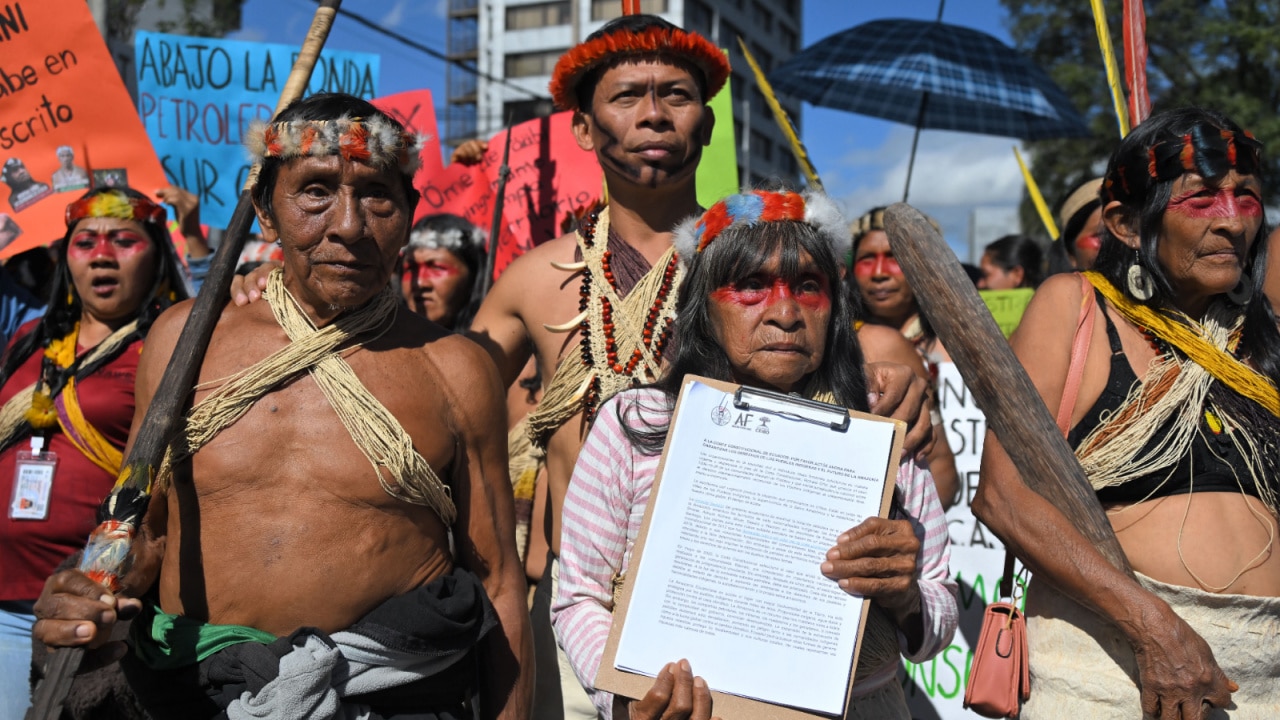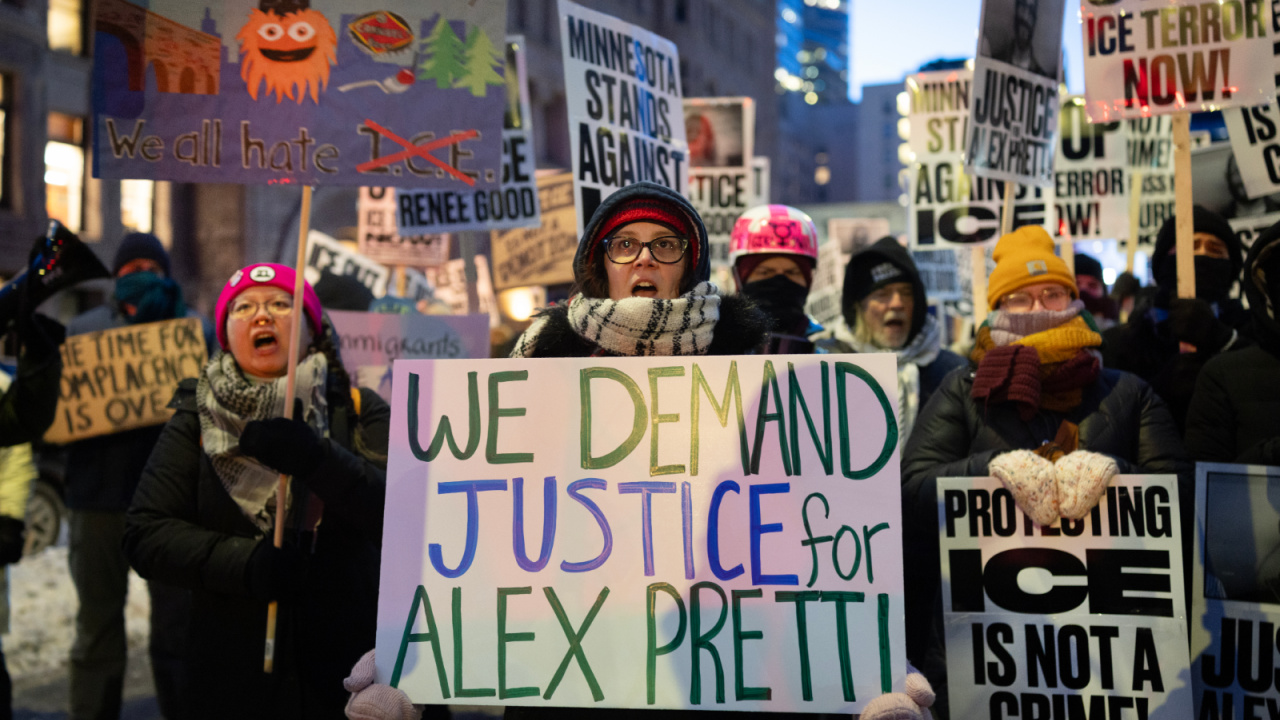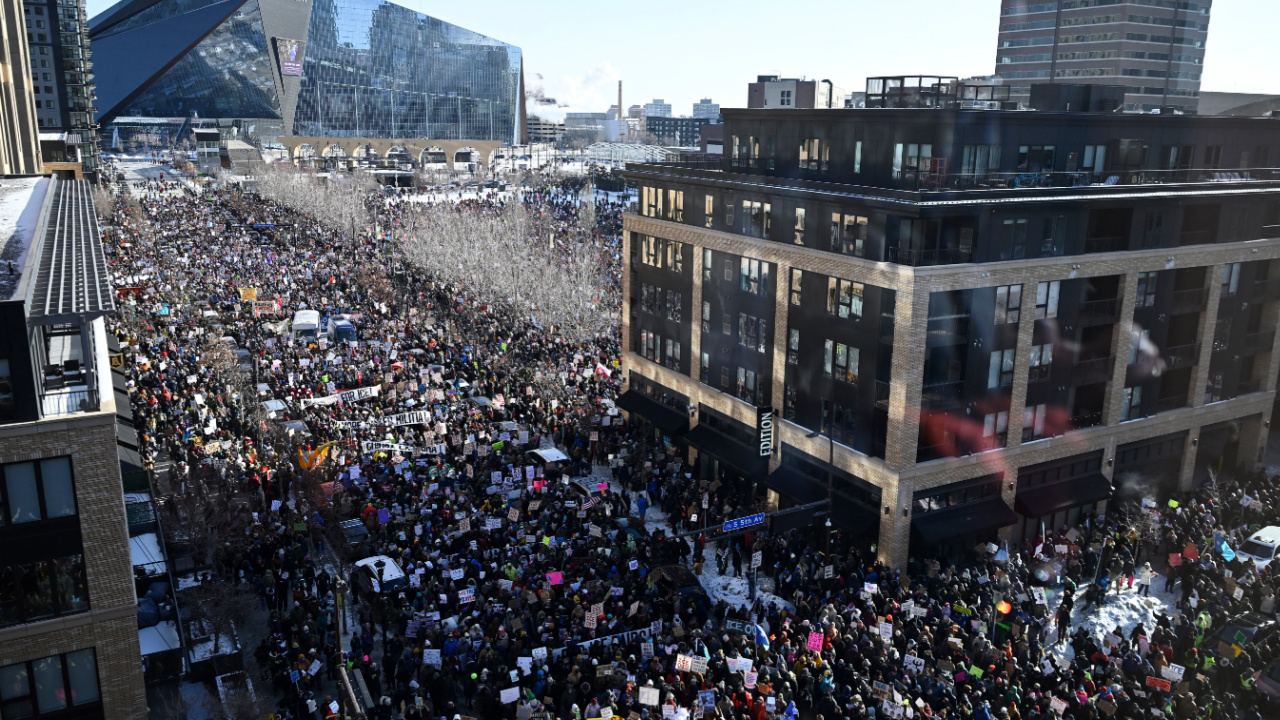
Indigenous Communities Are Fighting Back As Ecuador Tries To Sell Off the Amazon for Oil
Indigenous groups in Ecuador are fighting back against the federal government and oil companies. Seven indigenous groups are calling out the government’s plan to offer up land for oil exploration. At stake for the groups is the loss of land and the potential environmental impact of the projects.
Indigenous groups are fighting back against the Ecuador government
Leaders from the Andwa, Shuar, Achuar, Kichwa, Sapara, Shiwiar, and Waorani peoples are demanding a change to the current plan. Right now, the Ecuadorian government is proposing what they are calling the “hydrocarbon roadmap” to modernize the country’s oil production. The government is getting ready to auction the right for up to $47 billion in oil and gas projects. The problem is that the projects would infringe on indigenous rights.
The indigenous groups claim that the land offered by the government overlaps with their territories. Indigenous groups say the Ecuadorian government failed to consult them before announcing the plan. They also accuse the government of ignoring court rulings.
“The government is pushing ahead with plans to auction 18 oil blocks in our ancestral territories without free, prior, and informed consent,” Nemo Guiquita, a Waorani leader with the Confederation of Indigenous Nationalities of the Ecuadorian Amazon, told ABC News. “That is a constitutional and international right the state is violating.”
President Daniel Noboa, who was born in Miami, has overseen a drastic cutting of the Ecuadorian federal government. Recently, President Noboa consolidated various ministries to bring what he saw as government efficiency. Many expressed concern about what the move means for the ministries’ work and long-term public trust.
The current Ecuadorian administration has alarmed environmentalists
The Environment Ministry was eliminated and its responsibilities were moved to the Energy and Mines Ministry. This caused panic among indigenous communities and advocates. There was a fear originally that the move would undermine the rights of the indigenous Ecuadorian community.
“That is extremely dangerous. It strips away the rights of indigenous peoples and the rights of nature,” Nemonte Nenquimo, an activist and leader of the indigenous Waorani people, told Context earlier this year.
She added, “It’s a strategic move to enable future exploitation in the name of national development or for global markets. They speak of protecting the rainforest, but in practice, they authorize oil drilling and mining.”
Indigenous communities have won important victories in the Ecuadorian court system in recent years. The court decisions help to protect the land, but there is fear that the current administration is ignoring those rulings in pursuit of foreign investment.




